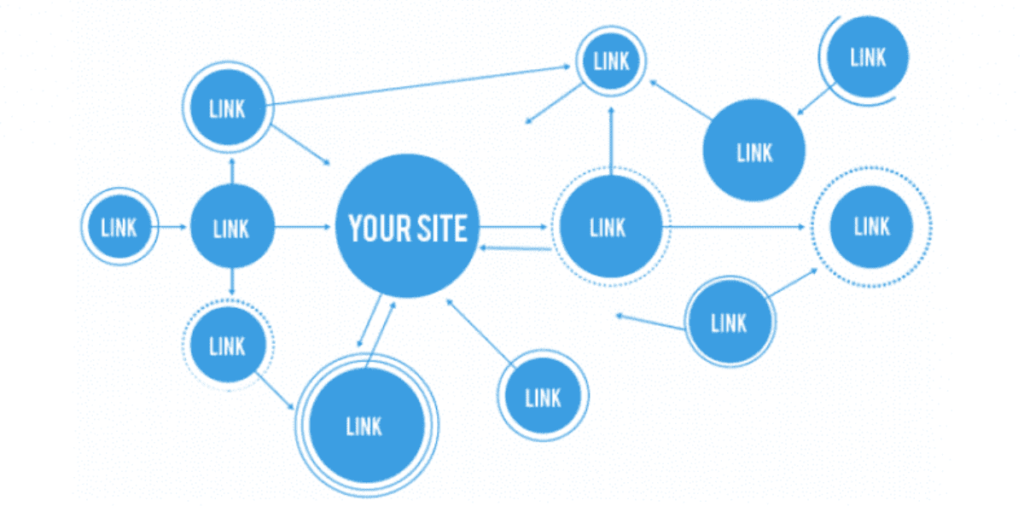Link building is an essential aspect of search engine optimization (SEO) that involves acquiring links from other websites to your own.
These links act as “votes” for your website, signaling to search engines that your content is valuable and authoritative. In turn, this can help improve your website’s visibility and search engine rankings. But link building is not a simple task, and there are many strategies and techniques involved.
In this guide, we’ll cover some of the most effective link building strategies for beginners, including guest blogging, broken link building, and competitor analysis. We’ll also provide tips on how to measure the success of your link building efforts and avoid common mistakes. So whether you’re new to link building or looking to improve your existing strategy, this guide is for you.
Table of Contents
What is Link building?
Link building is a phrase used frequently to describe the process of gaining links from an external website, which in turn increases the popularity of your webpage or website.
Building links to your site can help you achieve higher rankings for multiple keywords. But done the wrong way, it can even hurt your site!
In this guide, I have outlined 7 different strategies for building links. A few of them need advanced technical skills but most of them do not.
7 Powerful Link Building Strategies to Rank #1 on Google
Here are 7 link-building strategies to rank your website:

1. Guest Posting
Guest posting is by far one of the best ways to build high-quality backlinks to your site organically and with regularity. It is also a very powerful way to influence bloggers who can drive traffic to your website, as well as share your content on their own social media accounts which will, in turn, help your SEO.
The best way to do it is by finding people who share similar content and approaching them with a guest post you already wrote, but the key is to create good quality content which adds value for their audience. Make sure that you target high-traffic sites because then there’s a greater chance of it getting picked up and linked to.
There are many ways you can find high-traffic sites:
Use Google search operators like:
“Link:http://www.siteurl.com” (this will show you all the pages that link to your competitors) “Keyword site:domainname.com” – this will give you a list of sites ranking for your keywords “Keyword author:nameofblogger” – this will show you who are the authors writing on your target keyword
2. Blog Comments
While blog comments are not as effective as they were when blogging first started, there are still some benefits to leaving your website URL in the comment section of a relevant blog.
First, it helps drive traffic to your website, and second, it can help build links back to your site organically which is good for SEO.
It’s definitely not as effective as say guest posting or forum marketing but if you find the right blogs and leave valuable and relevant comments you’ll start to see a steady flow of traffic and backlinks.
3. Forum Posting
This is one of the classic ways, but it’s still very effective and even Google themselves suggests that forums are a great way to find quality backlinks:
“Forums often provide good topical discussions and include hyperlinks in their postings. These hyperlinks are great places to get “link love” to your site.
Just remember that, in most cases, you should link both to internal pages of your own site (such as a page on your blog) and also sometimes to relevant pages on other people’s sites. Also, make sure the forum rules allow for such links and check your site’s appearance in the forum to make sure it is not considered spamming.”
Of course, now that Google has evolved it is clear that this isn’t as effective as it once was. You also need to be very careful with niche forums because if you post on a targeted forum and link to your site, you may get banned from the forum or get a lot of negative attention.
It’s a kind of risk vs reward thing where each forum will have its own set of rules, so be sure to check them out before posting.
4. Social Bookmarking
When I talk about social bookmarking, I’m referring to using a service like Pinterest, Stumbleupon, Reddit, etc. to drive traffic and gain followers/potential customers. These websites are all very popular as they give people a chance to share what they love with others.
The way that social bookmarks work is that you find an interesting page online and submit it to one of these bookmarking sites so other people can check it out.
For the most part, these are all user-driven and there is no risk of getting banned for submitting your own content because you’re not trying to manipulate search results.
The best way to find targeted bookmarking sites is by using SEO Book’s free social bookmarks manager.
5. Infographics
Infographics are great assets for your business because they’re images that can contain a lot of information and they’re great for sharing on social media. However, the main reason you should create infographics is that they will help build links to your site organically.
People always want to know how many shares, likes, etc. an infographic has so it’s clear that it’s relevant and useful content – this makes others more likely to link back to it.
Infographics are usually quite unique and you will find that they get shared a lot, which means your infographics could rank for some targeted keywords too.
6. Create Content on Other Websites
If you want people to write about you or include links back to your site, one of the best ways to do it is by writing content for them.
This could be guest posting on high authority websites, or you could even try working out paid link opportunities (for example if you’re a web designer in London, contact other London-based businesses who are happy to exchange links).
7. Presentations/Webinars
This is another great way to get high-quality backlinks and traffic to your website.
Presentations and webinars are best when they’re highly targeted because you can really provide people with a lot of value (i.e. if you own an SEO company in London, find other local business owners in London and do a presentation on local SEO strategies). Because it’s highly targeted, you’re likely to find that the presentations and webinars will get shared a lot – which is good for your business.
Conclusion
Link building is an important aspect of any successful SEO strategy. By creating valuable content and building relationships with other websites, you can improve your website’s visibility and search engine ranking.
It’s important to remember that link building is a long-term process that requires patience and persistence. By following the strategies outlined in this guide and staying up-to-date with the latest trends and best practices, you can develop a successful link building strategy that drives traffic, builds your brand, and helps your website achieve its goals.
Remember to always prioritize quality over quantity, focus on creating valuable content, and build relationships with other website owners in your niche.







